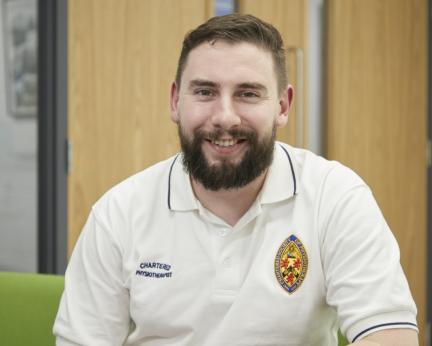I am a rotational physiotherapist which means I rotate to different departments after a period of time, maximising my learning and development. My rotations have been on several medical wards although Covid-19 has changed things.
My day starts with a multidisciplinary meeting where all staff discuss the patients currently on the ward to ensure they receive the best care. I then prioritise my patient list and organise my day with the other therapists and delegate if needed.
My day can be very varied but ultimately it will involve assessing new patients holistically with a person-centered approach, and rehabilitating patients to maximise their physical function. This includes improving mobility, stair assessments and strength exercises.
I may also have to assess and treat patients with respiratory conditions through a variety of techniques and if required I will escalate medically unwell patients. I will produce rehabilitation plans to motivate my patient. Also, I will collaborate with my colleagues and the patient’s family to produce a discharge plan so that the patient can return home in a safe and timely manner.
Covid-19 has greatly changed the way I worked as I was allocated to the Covid-19 wards. My responsibilities have increased and I have had to cover different wards and specialties. I have also had to learn and understand new respiratory techniques to help support patients who are very unwell. This has included 'proning' patients (placing them flat on their abdomen with their chest and face down) and non-invasive ventilation. I have also had the privilege of rehabilitating Covid-19 survivors who have been stepped down from critical care. This has been an intensive and long process due to the debilitating effects of the virus and the effects of deconditioning from long stays in critical care.
I have had to be flexible as we moved to seven-day working and I got used to uncomfortable and hot personal protective equipment (PPE). Overall, this has been a challenging but rewarding experience that has been the highlight of my physiotherapy career.





